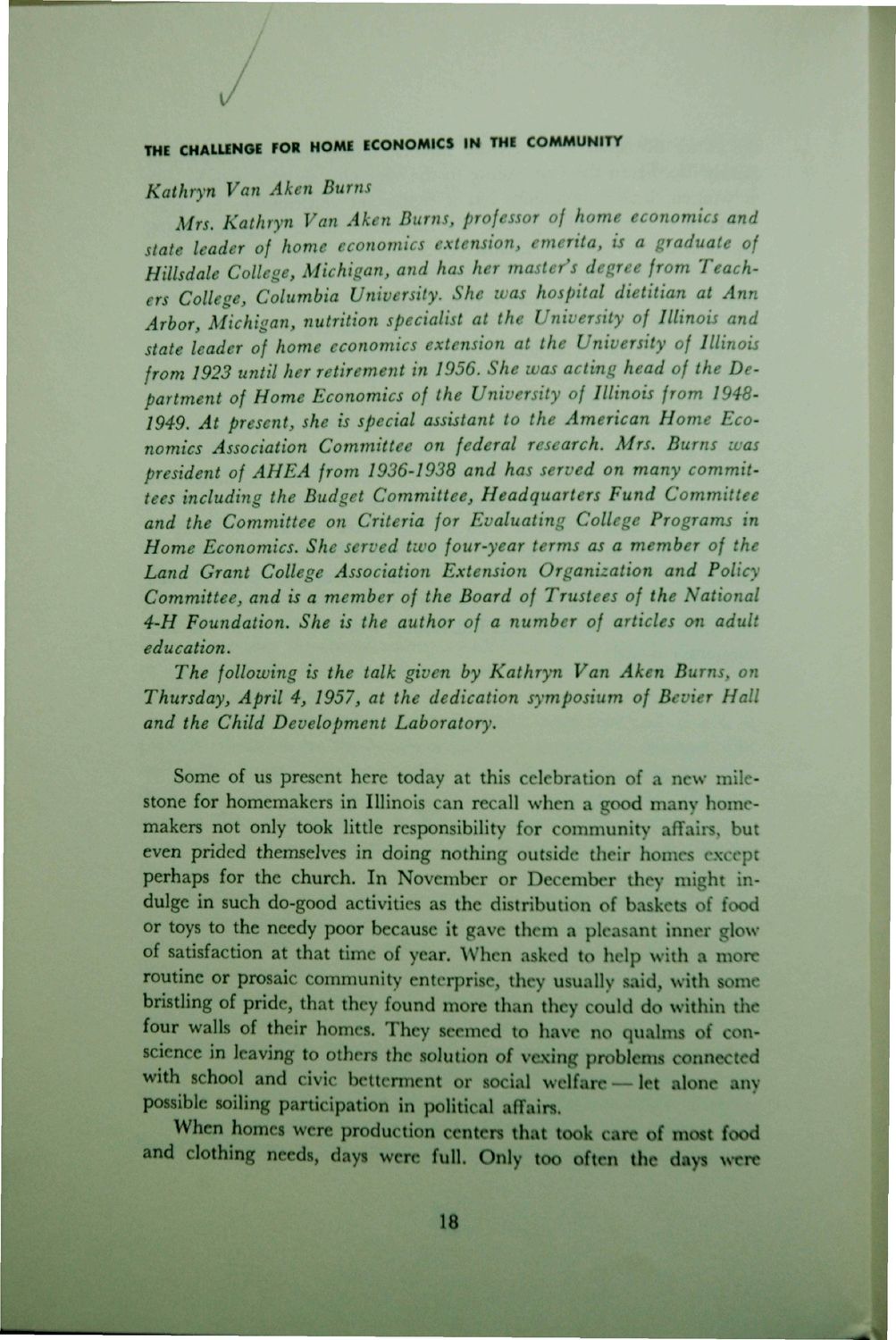| |
| |
Caption: Dedication - Home Economics - Challenge of Home Economics
This is a reduced-resolution page image for fast online browsing.

EXTRACTED TEXT FROM PAGE:
1/ THE CHALLENGE FOR HOME ECONOMICS I N THI COMMUNITY Kathryn Van Aken Burns Mrs. Kathryn Van Aken Burns, professor of home economics and state leader of home economics extension, emerita, is a graduate of Hillsdale College, Michigan, and has her master's degree from Teach' ers College, Columbia University. She was hospital dietitian at Ann Arbor, Michigan, nutrition specialist at the University of Illinois and state leader of home economics extension at the University of Illinois from 1923 until her retirement in 1956. She was acting head of the Department of Home Economics of the University of Illinois from 19481949. At present, she is special assistant to the American Home Economies Association Committee on federal research. Mrs. Burns was president of AHEA from 1936-1938 and has served on many commit' tees including the Budget Committee, Headquarters Fund Committee and the Committee on Criteria for Evaluating College Programs in Home Economics. She served two four-year terms as a member of the Land Grant College Association Extension Organization and Policy Committee, and is a member of the Board of Trustees of the National 4-H Foundation. She is the author of a number of articles on adult education. The following is the talk given by Kathryn Van Aken Burns, on Thursday, April 4, 1957, at the dedication symposium of Bevier Hall and the Child Development Laboratory. Some of us present here today at this celebration of a new milestone for homemakcrs in Illinois can recall when a good many homemakers not only took little responsibility for community affairs, but even prided themselves in doing nothing outside their homes except perhaps for the church. In November or December they might indulge in such do-good activities as the distribution of baskets of food or toys to the needy poor because it gave them a pleasant inner glow of satisfaction at that time of year. When asked to help with a more routine or prosaic community enterprise, they usually said, with some bristling of pride, that they found more than they could do within the four walls of their homes. They seemed to have no qualms of conscience in leaving to others the solution of vexing problems connected with school and civic betterment or social welfare — let alone any possible soiling participation in political affairs. When homes were production centers that took cart of most food and clothing needs, days were full Only too often the days were 18
| |